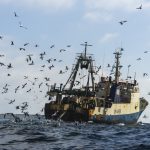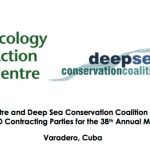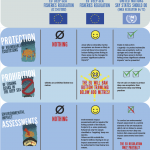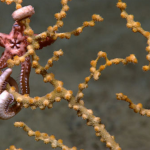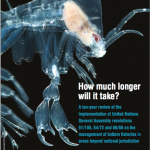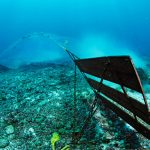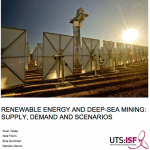Negotiations are currently underway at the UN in NYC to decide the fisheries resolutions which will go before the General Assembly next month. On November 9th & 10th the highly destructive practice of bottom fishing in the deep ocean will be under scrutiny. Following a review earlier this year to consider the implementation of previous resolutions seeking to control the negative impact, the DSCC is calling for bottom fishing on seamounts to be stopped to preserve fragile habitats. A resolution proposed by South Africa supports this and also calls for a further review in 2020. This and other proposals will be discussed over the coming two days.
Continue reading Ten Years On It’s Time To Protect The Seamounts

